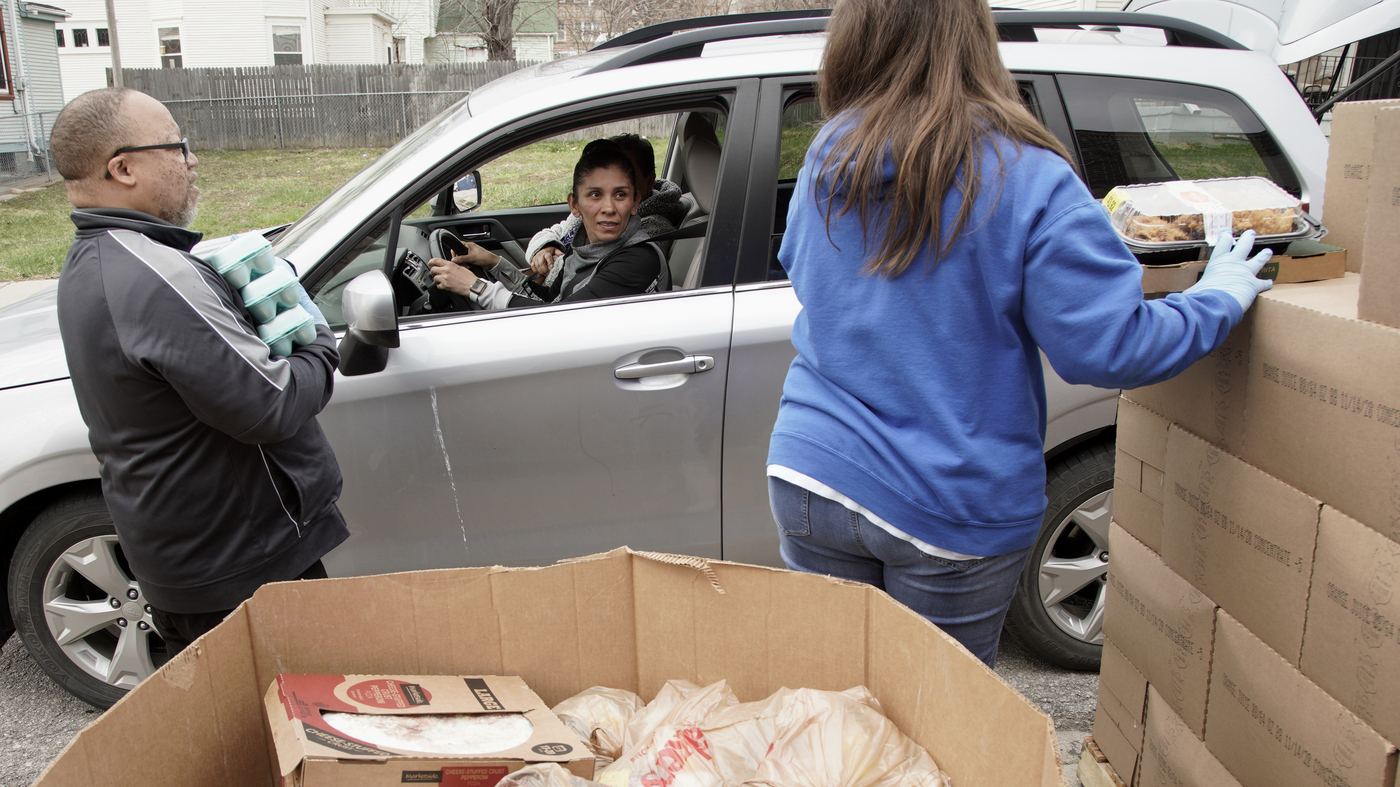- Joined
- Dec 11, 2018
- Messages
- 1,222
- Trophies
- 0
In recent days, top U.S. government officials have moved to assure Americans that they won't lack for food, despite the coronavirus.
As he toured a Walmart distribution center, Vice President Pence announced that "America's food supply is strong." The Food and Drug Administration's deputy commissioner for food, Frank Yiannas (a former Walmart executive) told reporters during a teleconference that "there are no widespread or nationwide shortages of food, despite local reports of outages."
"There is no need to hoard," Yiannas said.
In fact, the pandemic has caused entirely different problems: a spike in the number of people who can't afford groceries and a glut of food where it's not needed.
Dairy farmers in Wisconsin, Minnesota and Georgia have been forced to dump thousands of gallons of milk that no one will buy. In Florida, vegetable growers are abandoning harvest-ready fields of tomatoes, yellow squash and cucumbers for the same reason.
"We cannot pick the produce if we cannot sell it, because we cannot afford the payroll every week," says Kim Jamerson, a vegetable grower near Fort Myers. Those crops will be plowed back into the ground. "We'll have to tear 'em up," Jamerson says. "Just tear up beautiful vegetables that really could go elsewhere, to food banks, and hospitals, and rest homes."
The country's food distribution system, in normal times, is a marvel, efficiently delivering huge amounts of food to consumers. But it relies on predictability, like a rail system that directs a stream of trains, on set schedules, toward their destinations. Now, some of the biggest destinations — chain restaurants, schools and workplace cafeterias — have disappeared, and supply chains are struggling to adapt.
Meanwhile, food banks and pantries are having trouble supplying enough food to people who need it, including millions of children who no longer are getting free meals at school and people who've lost jobs in recent weeks.
Claire Babineaux-Fontenot, CEO of Feeding America, a network of food banks and charitable meals programs, says that these programs normally receive large donations of unsold food from retail stores. In recent weeks, though, as retailers struggled to keep their shelves stocked, "we're seeing as much as a 35% reduction in that donation stream from retail," Babineaux-Fontenot says.
Food banks are trying to claim more of the food that is stranded in the food service supply chain, either through donations or by buying it.
"We are capturing some of that. I know we're not capturing all of it, but we have a whole team of professionals whose job is to try to make sure that we capture as much of it as we possibly can," Babineaux-Fontenot says. "So we're having conversations with major restaurants. We're having conversations with major producers, with trade associations, the whole gamut."

Food Shortages? Nope, Too Much Food In The Wrong Places
Some Americans, fearing food shortages from COVID-19, have cleaned out supermarket shelves. Yet there's too much food in some places. Farmers are dumping milk and vegetables that they can't sell.